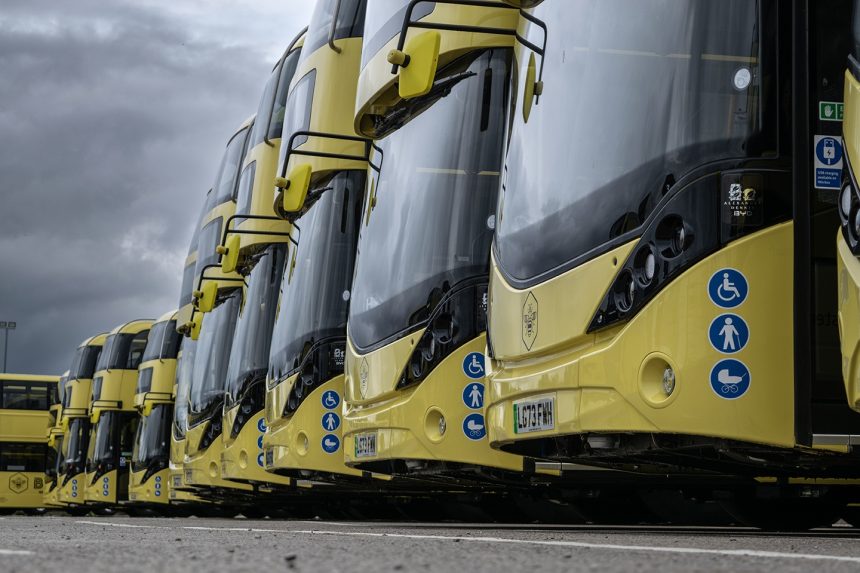The Bee Network’s battery-electric buses are contributing towards a drop in air pollution in Greater Manchester, according to new figures.
The new data show the number of places in the city where illegal levels of nitrogen dioxide were recorded has fallen by more than 70% since 2018.
The updated report on the Greater Manchester Clean Air Plan cites such air pollution locations as dropping from 129 seven years ago, to 64 in 2023 and 38 in 2024.
Transport for Greater Manchester (TfGM) credits in part the more than 300 electric buses in operation in the city. This is 10 times more than before franchising began in September 2023.
The transport authority plans to fully electrify its fleet by 2030.
TfGM says the data confirms modelling carried out on behalf of Greater Manchester’s 10 local authorities showing the city-region can bring air quality within legal limits without the need for a charging Clean Air Zone – and achieve improvements faster.
Depots in Bolton, Manchester and Oldham have been upgraded with charging infrastructure, and Ashton has recently become the city region’s first fully electric depot.
Cllr Eamonn O’Brien, Leader of Bury Council and Clean Air lead for Greater Manchester, says: “We’ve always been focused on doing what’s right for Greater Manchester and, by accelerating investment in our public transport network, we’re showing that it’s possible to improve air quality faster than if a charging Clean Air Zone had been introduced.
“Investment in the Bee Network is enabling more people to choose cleaner, greener ways to get around – like public transport and walking or cycling – instead of driving.
“As we deliver our Clean Air Plan alongside the Bee Network, with support from the government, we’ll roll out the UK’s first fully integrated, zero-emission public transport system by the end of the decade and improve the air we all breathe for generations to come.”


























